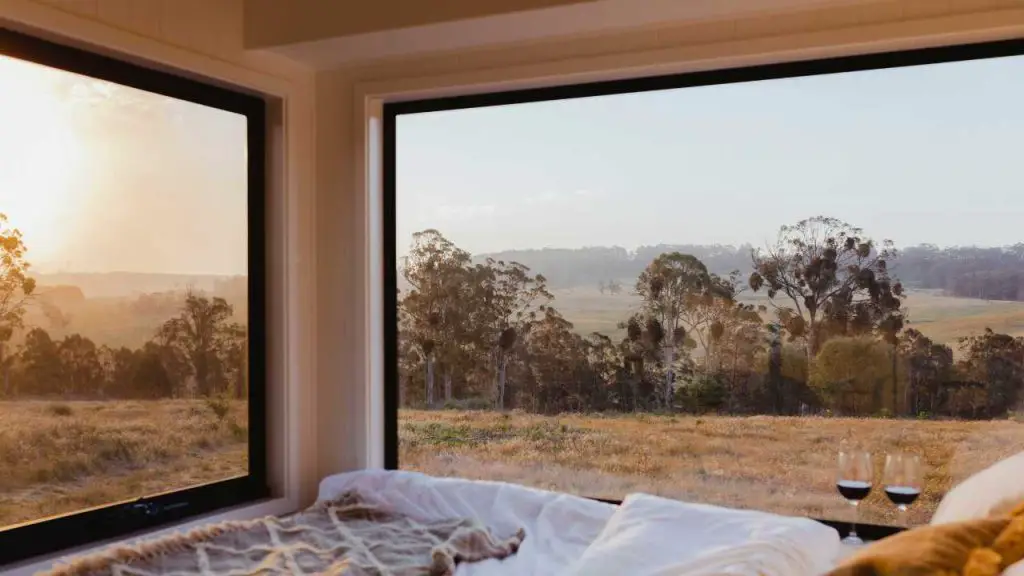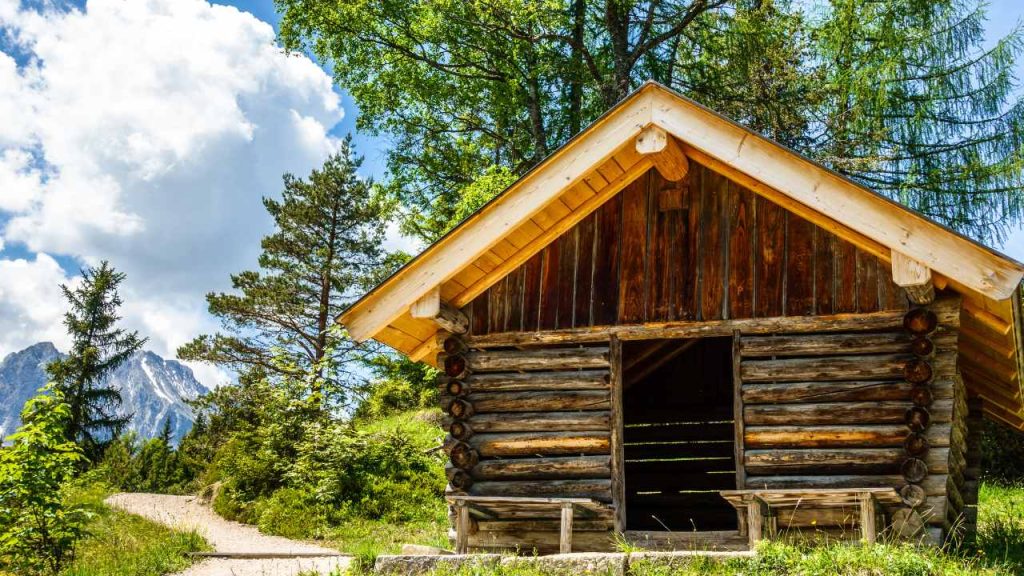Living off the land is legal as long as it is not done on private property without the owner’s permission. In other words, you can forage, hunt, and fish on public lands without breaking any laws.
However, if you want to live off the land on private property, you need to obtain the owner’s permission first. It is important to check for any local or state laws that regulate activities such as hunting and fishing before you start living off the land.
Living off the grid is gaining popularity, especially among those who seek a more sustainable and self-sufficient lifestyle. In this article, we will explore the legal considerations of living off the land, including the regulations and permits needed to do so.
The Legality Of Living Off The Land
Living off the land has become an increasingly popular lifestyle choice. However, it is essential to understand the legal aspects of this way of life. In this section, we will explore the legality of living off the land.
Understanding The Different Laws Related To Living Off The Land
Living off the land involves many activities that in some cases may break the law.
- Local laws: These laws are created by local governments such as towns or cities and vary by location.
- State laws: These laws are created by state governments and apply throughout the state.
- Federal laws: These laws are created by the federal government and apply nationwide.
The Role Of Local, State, And Federal Laws In Regulating Living Off The Land
Each level of government has a role in regulating living off the land. Generally, federal laws apply throughout the united states. State laws apply to the entire state, while local laws apply to a specific town or county. Laws that typically regulate living off the land include zoning laws, animal welfare laws, and hunting and fishing regulations.
Some of the key points to consider include:
- Zoning laws: These laws dictate how land can be used, including whether you can live in a tent or rv in certain areas.
- Animal welfare laws: These laws govern how animals can be used and treated on and off the land and include regulations on livestock and pets.
- Hunting and fishing regulations: These laws dictate the hunting and fishing seasons, where hunting and fishing are allowed, and what types of animals can be hunted or fished.
Examples Of Activities That Are Generally Allowed And Prohibited
Living off the land involves many activities, some of which are permitted, while others are not.
- Growing your fruits and vegetables
- Fishing for personal consumption
- Collecting rainwater
- Camping on public land
- Building homes using natural materials.
On the other hand, some activities that are often prohibited include:
- Hunting or fishing without a permit
- Cutting down trees
- Using firearms to protect your land
- Living permanently on public land.
Understanding the legal aspects of living off the land is crucial to avoiding legal problems. By following the laws and regulations that apply to your location, you can live off the land without any issues.
The Potential Risks Of Living Off The Land
Living off the land has remained a topic of interest to many people. With the bustling world we live in, some have considered this as an alternative lifestyle to be self-sufficient and reduce their carbon footprint. However, while the idea of living off the land seems idyllic, there are potential risks and consequences to consider.
In this post, we will explore the potential risks of living off the land, including the risks of relying solely on natural resources, the environmental impact of such actions, and the potential legal consequences of illegal activities.
The Risks Of Relying Solely On Natural Resources
Relying solely on natural resources for food and resources poses risks that could be detrimental to human survival.
- Inability to consistently get enough food
- Lack of necessary nutrients for a balanced diet
- Exposure to harmful chemicals and pathogens in the environment
- Danger of injury or death when obtaining resources
While living off the land may seem attractive, it is crucial to understand the potential risks and evaluate whether it is sustainable in the long run.
The Environmental Impact Of Living Off The Land
While living off the land can seem like an environmentally friendly option, there are potential negative environmental impacts to be aware of.
- Overexploitation of natural resources such as water and timber
- Soil degradation and erosion
- Loss of biodiversity
- Pollution of water and soil due to improper waste disposal
Living off the land sustainably would require a lot of effort, knowledge, and planning to minimize the negative impact on the environment.
The Potential Legal Consequences Of Illegal Activities
While it is legal in some parts of the world to build shelter or hunt on public land, it is crucial to abide by relevant laws and regulations. Engaging in illegal activities such as hunting without a license or building a structure in a protected area could lead to legal consequences.
- Fines and penalties
- Confiscation of equipment or property
- Imprisonment
To avoid legal consequences, it is essential to research the laws and regulations in the area you intend to live off the land and adhere to them.
Living off the land can seem like an appealing lifestyle choice for those seeking self-sufficiency and environmental sustainability. However, it is crucial to consider the risks and plan accordingly to avoid any negative consequences.
Tips For Living Off The Land Legally
Living off the land is a fulfilling way of life that connects you to nature and promotes self-sustainability. However, it is essential to ensure that your practices are legal and protect the environment. In this section, we’ll discuss the tips you can consider to live off the land legally.
Learn And Follow Local Laws And Regulations
Living off the land involves more than just planting crops and raising livestock, and local laws and regulations determine what can and cannot be done on the land. It is essential to research and understand the regulations in your area to avoid legal issues while living off the land.
Here are some key points to keep in mind:
- Check local zoning laws to understand what types of activities are permitted on your land.
- Research local wildlife management regulations to avoid endangering protected species.
- Understand water-rights laws that apply to your area.
- Make sure to comply with local building and safety codes while constructing structures on your property.
Obtain Necessary Permits Or Licenses
Depending on where you live, you may need specific permits or licenses to engage in certain activities while living off the land. Obtaining the required permits or licenses not only helps you stay in compliance with local regulations but also protects you from excessive fines and legal action.
Here are some permits or licenses you may need:
- Agricultural permit or license – applies to those who cultivate crops or raise animals for commercial purposes.
- Hunting or fishing license – necessary if you plan to hunt or fish for food.
- Logging permit – required if you plan to harvest timber from your land.
- Water rights permit – needed if you plan to use surface or groundwater for irrigation purposes.
Develop Sustainable And Environmentally Friendly Practices
Living off the land means that you need to adopt sustainable and environmentally friendly practices to maintain the ecosystem’s health around you.
- Practice crop rotation to prevent soil dehydration and promote biodiversity.
- Utilize natural compost to fertilize your crops and reduce erosion.
- Use natural pesticides and herbicides or use alternative methods to control pests and weeds.
- Implement rainwater collection systems to avoid wasting water and reduce your ecological footprint.
By following these tips, you can live off the land legally while ensuring that your practices are environmentally friendly. Remember, it is essential to stay up-to-date with the latest regulations and laws in your area to avoid any legal issues.
Happy farming!
Frequently Asked Questions Of Is It Legal To Live Off The Land?
Can You Legally Live Off The Land In The United States?
Yes, it is legal to live off the land in the united states, but it depends on where you do it and how you go about it. You need to make sure you are not violating any laws or regulations, such as trespassing on private property or hunting protected wildlife.
What Are The Benefits Of Living Off The Land?
Living off the land can provide benefits such as saving money, being self-sufficient, connecting with nature, and reducing your carbon footprint. It can also be a healthier way of living as you can grow your own food, rely less on processed foods, and engage in regular physical activity.
What Are The Challenges Of Living Off The Land?
Some challenges of living off the land include the lack of modern amenities, the need for specialized skills and knowledge, isolation from society, and the risk of facing natural disasters or environmental threats. It also requires a lot of hard work and dedication to maintain a sustainable lifestyle.
Can You Build A Home On Public Land And Live Off The Land?
In most cases, it is illegal to build a home on public land and live off the land permanently. However, there are some exceptions such as if you obtain a government permit or are a designated park ranger. It is best to check with the local authorities for specific rules in your area.
What Are The Legal And Ethical Considerations When Living Off The Land?
Legal considerations include obtaining necessary permits for hunting, fishing and trapping. Ethical considerations include respecting the natural environment, not taking more than you need, and giving back to the land. It’s also important to be aware of cultural or historical significance of the land and respect the sovereignty of indigenous peoples.
Conclusion
Living off the land is a brave decision many people around the world have made over time, either as a choice or a necessity. The legal aspect of this choice is crucial and has been met with mixed emotion, with some countries and states regulating the practice and others giving it a pass.
The legality of living off the land varies from state to state and country to country, and while it might be allowed in some places, it might be entirely prohibited in others. It is expedient for anyone planning to take this step to conduct thorough research to understand their local regulations and laws to avoid going against the law.
While living off the land may sound like a fantastic idea to many, it is important to check the laws regarding the practice in your area and avoid running afoul of the law in pursuit of living off the land.

“My name is Leo Jacob, and I hold a Bachelor of Science degree with Honors in Applied Environmental Science and Sustainability from the University of the West of Scotland. Since childhood, I’ve been passionate about living an eco-friendly life. After completing my studies, I dedicated myself to finding simple ways to lead a more environmentally conscious lifestyle. I launched ecolifely.com to share my educational background and practical experiences with everyone, hoping to inspire others to join me in creating a greener, more sustainable world.”










